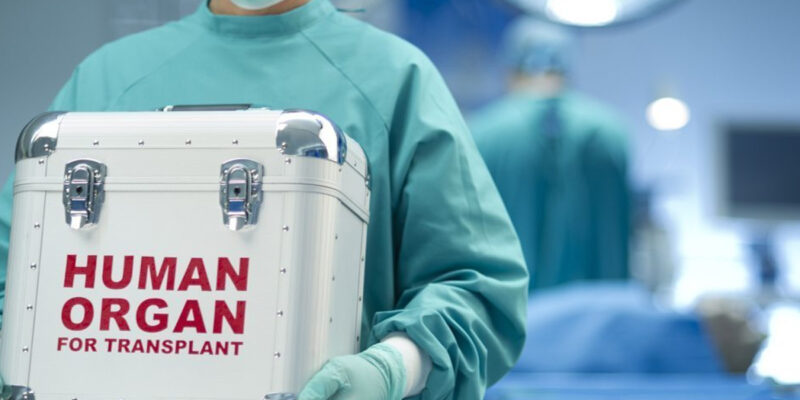In 1984, President Ronald Reagan signed into law the National Organ Transplant Act. This created a great public-private model in our nation’s organ donation and transplant system that greatly benefits the citizens of Louisiana.
It is easy to point to federal government programs that are characterized by waste, fraud, and abuse. Fortunately, Reagan’s legislation placed a very important healthcare function outside the realm of those who mismanage and exploit government programs.
When he signed the legislation, Reagan declared that “the Government will provide support for the establishment of an Organ Procurement and Transplantation Network (OPTN) in the private sector to maintain a national registry that will be used to match available organs with people who need them.”
He believed the legislation was able to strike “a proper balance between private and public sector efforts to promote organ transplantation, which should encourage families with loved ones who are awaiting a suitable organ.” The nation’s system of organ donation and transplant is one critical non-profit model Congress established, protected, and improved to provide services and access to transplant options.
Reagan labeled the groundbreaking legislation a “humanitarian effort.” The record shows that this vital system has worked very well over the last thirty-nine years, throughout the country and in our state of Louisiana.
According to the Louisiana Organ Procurement Agency, Pelican State “donors saved 670 lives in 2022,” breaking the organization’s record for donation and transplantation in the state. Over the years, more Louisianans have volunteered to become organ donors. The U.S. Department of Health and Human Services records indicate that in 2022, there were 330 donors of all types, which is a significant increase from 1988 when there were only 82 donors.
Despite the success of this program, crony capitalists and marketing firms are seeking to profit from patients in desperate need of transplants. While claiming the current system is a “monopoly,” these interests are lobbying Congress to select new partners in this system and a new approach.
Of course, President Reagan did not support monopolies, he was a staunch capitalist who believed in reducing the burden of government and allowing the private sector to flourish. Upon signing the National Organ Transplant Act, Reagan said, “I believe this act strikes a proper balance between private and public sector efforts to promote organ transplantation, which should encourage families with loved ones who are awaiting a suitable organ.” According to Reagan, the legislation “should help increase the overall supply of much needed organs and improve our ability to match donor organs with individuals in need of transplants.”
The United Network for Organ Sharing (UNOS) is a private, non-profit organization that holds the federal contract to operate the OPTN. It is proposing reforms to “improve” the system and “hold all parts of the system accountable to better serve the patients who rely on us every day.”
There is always a need to find better technology, improve services and eliminate transportation bottlenecks for donated organs, but the current system constantly works to solve these issues and improve its network of operations.
Advertisement
Reagan’s vision has been fulfilled since he signed the legislation in 1984. Indeed, our organ donor and transplant system may be an example of the greatest “public-private partnership” in U.S. history.
To gauge the success of the system, it is often best to listen to those who are utilizing it on a regular basis. In the view of Richard N. Formica, the director of transplant medicine and professor of medicine and surgery at Yale University School of Medicine, “Organ donation and transplantation are saving more lives in the United States than ever before, thanks to concerted work by stakeholders from across the country: donor families, organ procurement organizations, transplant centers, the Organ Procurement Transplant Network (OPTN), the hundreds of volunteers who serve on OPTN committees, and others.”
With organ allocation managed on a national basis, patients and physicians are empowered to make the best decisions. The results have been outstanding as every year there are more generous donations, successful transplants, and better outcomes.
In 2022, for example, a record 42,887 organ transplants were performed in America, up 3.7 percent from the previous year. Last September, the U.S. marked its one millionth organ transplant, a remarkable achievement for the donors, doctors, hospitals, and families that made it possible.
Our non-profit organ donation system is a remarkable achievement. In this case, President Reagan and Congress made the right decision that has served our country well.
Jeff Crouere is a native New Orleanian and his award-winning program, “Ringside Politics,” airs Saturdays from Noon until 1 p.m. CT nationally on Real America’s Voice TV Network & AmericasVoice.News and weekdays from 7-11 a.m. CT on WGSO 990-AM & Wgso.com. He is a political columnist, the author of America’s Last Chance and provides regular commentaries on the Jeff Crouere YouTube channel and on Crouere.net. For more information, email him at jcrouere@gmail.com
Advertisement
Advertisement

